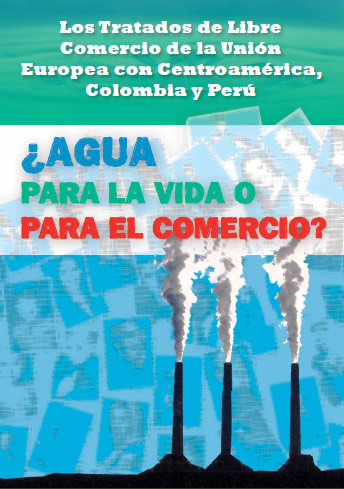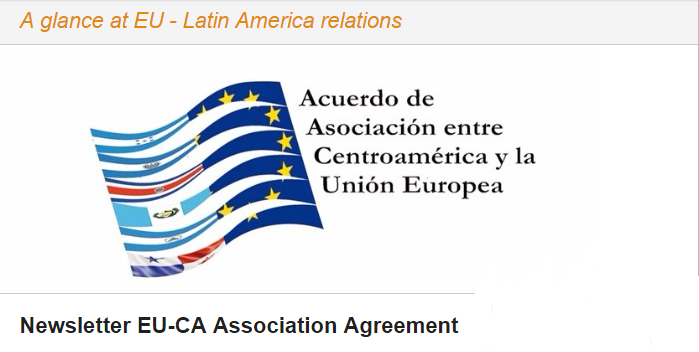In the context of this upcoming crucial decision-making process of the European Parliament, the aim of this paper is to draw to the attention of European and national parliamentarians how these EU’s trade agreements (AA and FTA) will negatively impact the human right to access clean water, particularly for the poor and vulnerable people on the bottom rung of society. The paper is divided into three parts: 1. The context in which these agreements have been discussed; 2. The potential impacts that these agreements will have on the human right to water and 3. The possible steps forward to change this policy’s negative outcomes.
EXECUTIVE SUMMARY
The EU’s trade agreements —the AA with Central America and the Multi-Party FTA with Colombia and Peru— will impact poor and vulnerable people’s human right to water. Three sets of reasons are given:
- ‘WATER BLINDNESS’ OF TRADE AGREEMENTS AND TSIAs: Securing sustainable and clean water access for all as a human right is a non-negotiable principle of human development. It must be included when evaluating the impact of trade agreements and this has not been done. The context of social vulnerability and ongoing violations to the human right to water have been ignored and excluded from the texts of the agreements and their respective Trade Sustainability Impact Assessments (TSIAS), hence they are fundamentally flawed. They ignore how these water intensive trade agreements will worsen people’s sustainable and clean water access. Likewise, absent/ weak water institutions, water specific problems country per country, hydro-impact mitigation measures are not includedin these trade policies. Furthermore, no explicit exclusion of water privatisation schemes is reflected in the texts.
- ADVERSE & INACCEPTABLE IMPACTS ON PEOPLE’S WATER SECURITY: The poor ‘water-blind’ design ofthe agreements and their respective TSIAS will increase violations of this human right especially affecting the poor and the vulnerable and this is not acceptable. Moreover, these States will lose degrees of water governance power, policy freedom and sovereignty in relation to the overarching legal framework of the trade agreements which prioritize trade over human rights. As the option to modify these trade agreements is not available for European Parliamentarians and the only choice is to ‘take it or leave it’, the ethical choice should be ‘to leave it’.
- LACK OF DEVELOPMENT COHERENCE & ETHICS: The agreements and their TSIAs lack ethical and sustainable development coherence because of flawed participation processes and the inexcusable omission of proper impact evaluations in people’s water access. Hence, a coherent sustainable development action should reject and ask for a review of the proposed trade agreements with Central America, Colombia and Peru; reject all laws and policies that violate the human right to water and explicitly prioritise this human right over the rights of corporations and trade.
Related documents:
Water for trade or for life? Free Trade Agreements between Central America, Colombia and Peru (PDF)





